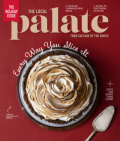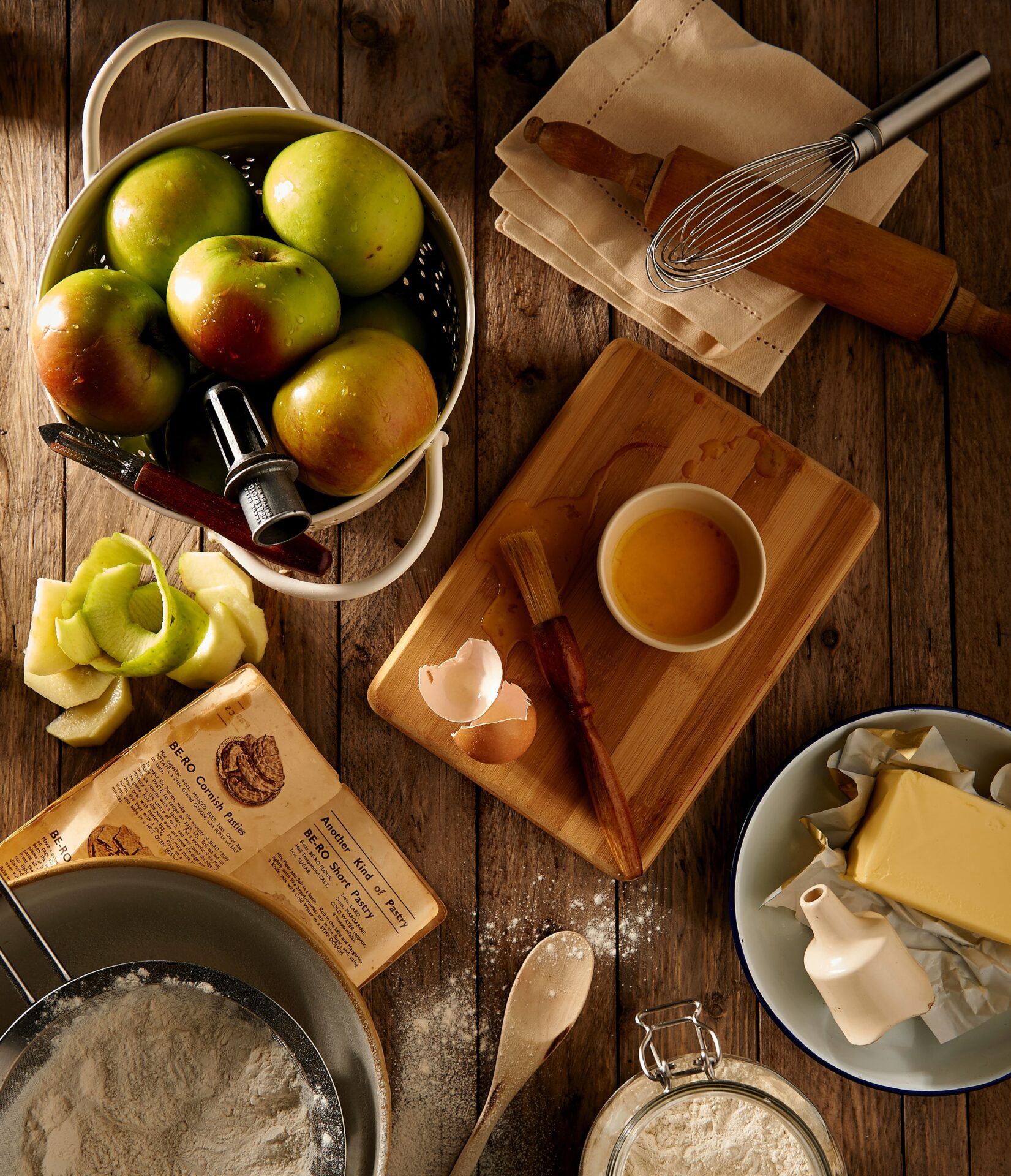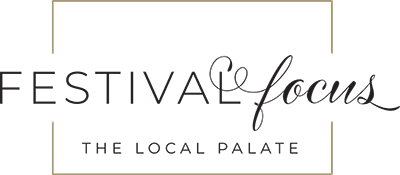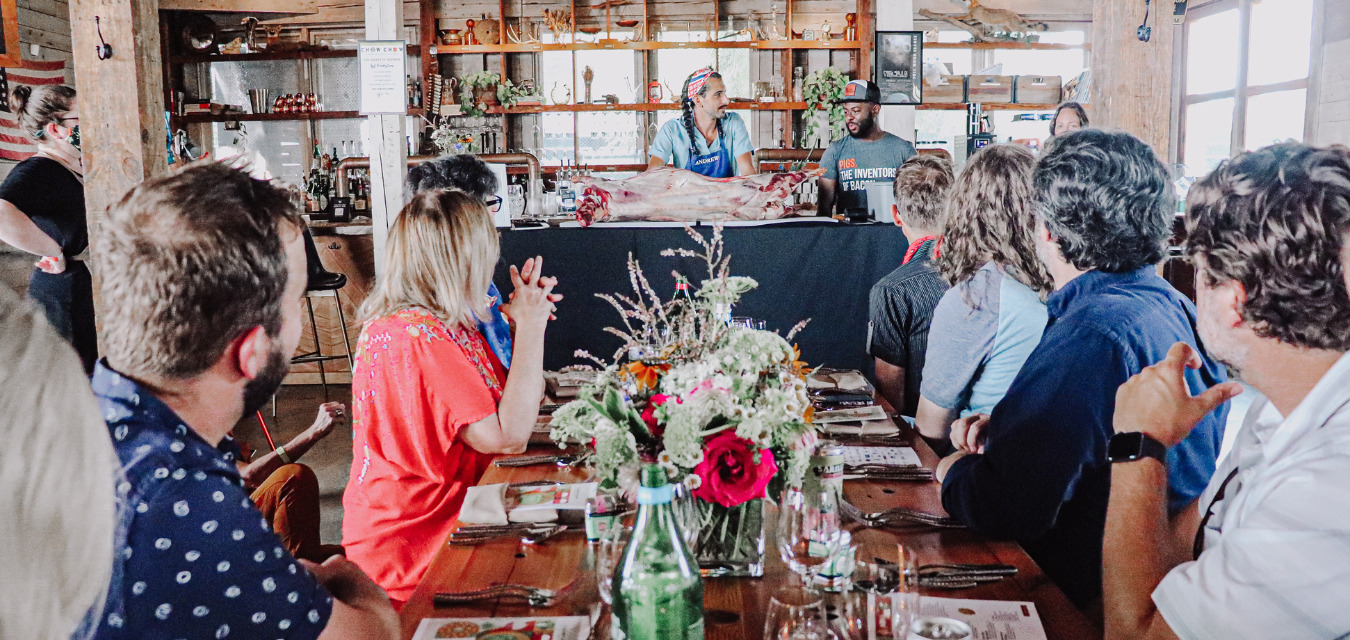The final weekend of 2022’s Chow Chow Asheville event occurs September 8-11. Tickets are available here.
Started by chefs, for chefs, Chow Chow in Asheville, North Carolina, celebrates the foodways and ingredients of Southern Appalachia quite unlike other food festivals. While many food and wine events emphasize eating and drinking (often in surplus), Chow Chow touts food’s ability to gather people around a table and elicit meaningful conversations.
“A lot of uncomfortable conversations can be softened by gathering around food,” says Rebecca Lynch, executive director of Chow Chow.
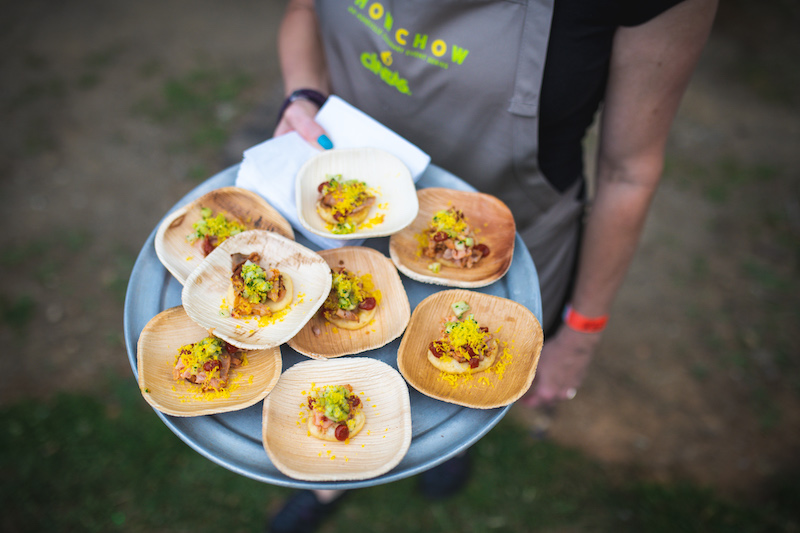
In agreement, founding board member and Appalachian chef John Fleer adds, “Hearts and minds magically open at the dinner table.”
The Asheville-based food festival began in 2019. Grounded in the local community, festival creators set out to highlight the farmers, brewers, distillers, and entrepreneurs in the city. But they didn’t want to follow the standard festival format.
“I’d given up going to large food festivals around 2004,” says Fleer, who owns Rhubarb, Rhu, and Benne on Eagle in downtown Asheville. “Selfishly, my motivation was creating an event I would like.”
He notes that “Asheville is a very intentional and topic-focused community.” He and other festival founders designed the event to “bring in those food-for-thought conversations,” like environmental sustainability, food insecurity, and Black entrepreneurship.
In its three years, Chow Chow has taken many forms: The first year followed a more traditional festival format, despite being founded with the intention of being more than a food festival. The second year held smaller events (scaled for Covid-19) every weekend over the entire summer. Though quite intense in terms of planning and execution, the board of directors noticed the dramatic improvement in feedback following the second year’s events. In 2022, Chow Chow has unfolded over three weekends, one in June, August, and September.
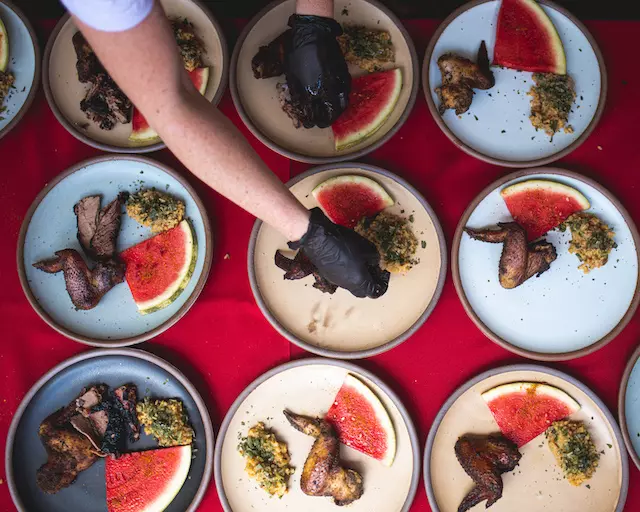
Each weekend dedicates itself to particular themes. In 2022’s series, June explored the African diaspora and Indigenous foodways; August’s programming focused on water justice issues, equitable housing, and climate change. The forthcoming September event will spotlight marginalized food histories and mental wellness within the food and beverage industry.
Drag brunches, hands-on workshops, cocktail classes, and multicourse dinners anchor these conversations. “Everything has speakers or panels built around a topic. The people on those panels are running organizations dealing with those issues,” Fleer says.
Festival organizers plan the programming in close collaboration with the Asheville community. In the year leading up to each Chow Chow festival, they ask for members of the food and beverage community and adjacent ones for input on topics to address or organizations to support. However, the organizers work hard to ensure everyone has a voice in the planning.
Fleer and Rebecca Lynch admit that the festival’s outreach and representation have been a work in progress. “You can’t just put out an open call for ideas,” Fleer says. “In order to get ideas that represent the entire community, you have to go and ask for them. In Asheville, the Black community, for example, doesn’t always feel empowered to offer those ideas. You have to be intentional about asking community members what they’d like to see come out of Chow Chow.”
Lynch and Fleer noted a significant improvement in feedback following 2021’s events. “I think that Chow Chow can push ahead with so many positive relationships forged—a much broader set of relationships and a more equitable set of relationships. It’s exciting to think of what’s to come,” Fleer says.
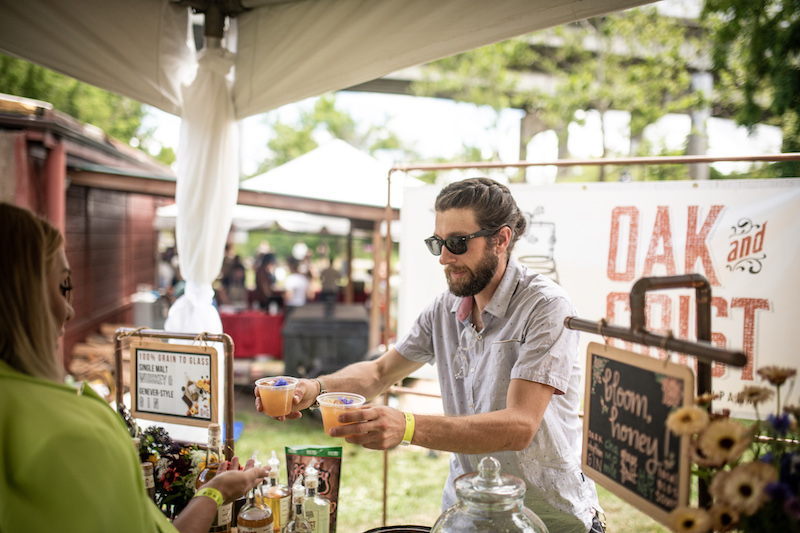
Chow Chow intentionally curates an inclusive festival environment. Each weekend event includes a pay-as-you-will Sunday Supper series, where anyone can come to take part in the chef-prepared meal and the conversation on the table. “No matter your background or income level, we want everyone here,” Lynch says. “We’re striving to create a new model of a type of culinary event series that is community centered and equitable…A lot of differences can be overcome when gathering around something delicious.”
share
trending content
-
Charleston’s Hottest Neighborhood
by TLP Editors -
Charleston’s Kitschy Sichuan Spot
by TLP Editors -
Man Behind Charleston’s Lively Tapería
by TLP Editors
